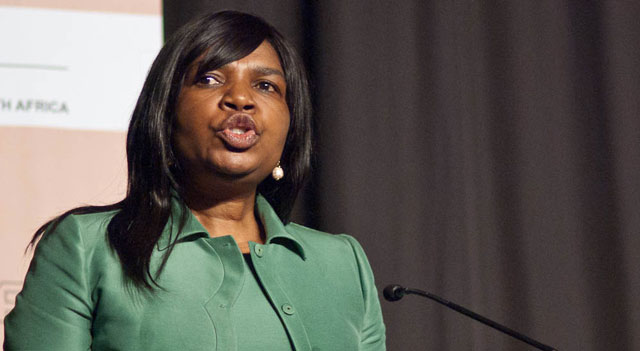
Proposed amendments to the Icasa Act, which governs the Independent Communications Authority of South Africa, have come under heavy fire, with critics warning the changes hand too much power to communications minister Dina Pule.
After two years of inaction, government has revived the Icasa Amendment Bill and has given interested parties 30 working days from its publication in the Government Gazette to provide written comments on its content.
Already, the bill has drawn fire from the official opposition, the Democratic Alliance, and from the SOS Coalition, a civil society body focused on the public broadcasting sector in South Africa.
DA MP and shadow communications minister Marian Shinn describes the latest draft of the amendment bill as “odious” and says this, read together with the proposed Electronic Communications Act Amendment Bill, suggests a “move to take away the powers of Icasa”.
“This is a move to give the minister more powers than she should have,” Shinn says, adding that institutions that enjoy constitutionally protected independence from the executive arm of government “should not be at the whim of a minister where there is a danger of political appointments”.
Proposed amendments to section 5 of the Icasa Act look set to cause particular consternation. Specifically, the bill has proposed watering down parliament’s oversight role in the appointment of councillors to the authority. The minister will now only have to consider the “recommendations” of the national assembly, whereas currently parliament identifies and interviews candidates and then creates a shortlist which is sent to the minister for approval, before her choices are sent back to parliament.
The SOS Coalition accuses Pule of raising the amendment bill “from the dead”, saying it contradicts her promise of a thorough review of information and communications technology policy, which, it says, was to have been finalised by the end of 2012.
Shinn agrees, saying if changes are made to legislation now, such changes should be of a minor technical nature only ahead of a comprehensive policy review.
Pule explains in notes accompanying the Icasa Amendment Bill that in the current “intervening period” prior to the development of a new, comprehensive ICT sector policy, “certain amendments are necessary and appropriate in relation to both the Electronic Communications Act and the Icasa Act”.
Although Pule says the aim of the draft bill is to provide for, among other things, further clarity on the powers and duties of Icasa and to provide for the establishments of a complaints and compliance commission to replace the existing complaints and compliance committee, the SOS Coalition says it’s clear that the aim is not to introduce minor technical changes. “Rather, it seeks to fundamentally alter the role, powers and operations of the regulator. As such, it flies in the face of and deeply undermines the promised ICT policy review process.”
The coalition says it’s view is that a number of suggestions made in the amendment bill are both “unconstitutional” and “fly in the face of regulatory best practice”.
“These include provisions that mean Icasa has to act directly in accordance with ministerial policy directions and undefined ‘sector policy’; the minister has to approve every single appointment of consultants and experts that Icasa wishes to appoint; the minister has powers to appoint the new complaints and compliance commission, an absolutely key function of the day-to-day work of a regulator; and parliament’s powers in respect of the appointment of Icasa councillors are reduced.”
Pule says the amendments to the act are meant to address the need for “some institutional improvements” so as to “strengthen” the regulator as well as to “clarify certain aspects of its powers [and] improve its efficiency”.
“Greater accountability and transparency is likely to result and we are certain that improved governance will also result in part from legislative changes but as much because of closer working between the department [of communications] and Icasa at policy level.”
This, Pule says, “should not be read to suggest any limitation on Icasa’s independence”. However, she says both Icasa’s independence and the area of content regulation deserve “more attention” and, as a result, she has decided that these “important matters should be dealt with in the context of the general sector review”.
For now, no changes to the way Icasa is funded have been proposed, meaning it will continue to receive an annual allocation from national treasury rather than funding its own activities through licence revenues it collects from the industry. However, Pule says the development of an alternative funding model will be considered in terms of the sector-wide policy review.
“Any changes to the current funding model must be underpinned by evidence, best practice and the potential impact on the national revenue fund”. — (c) 2012 NewsCentral Media




